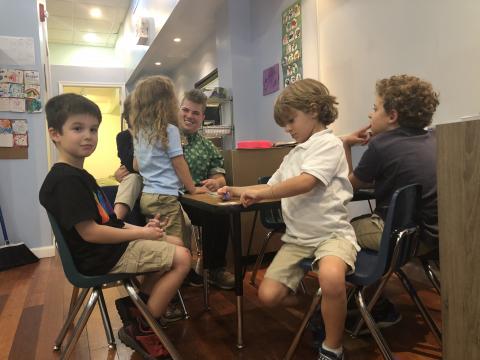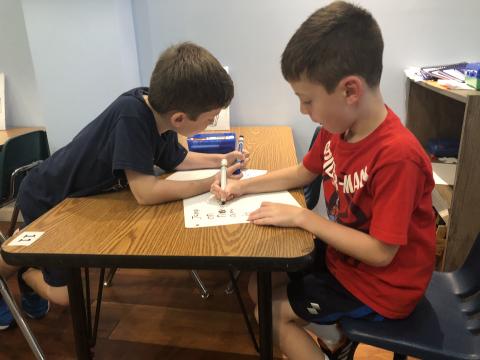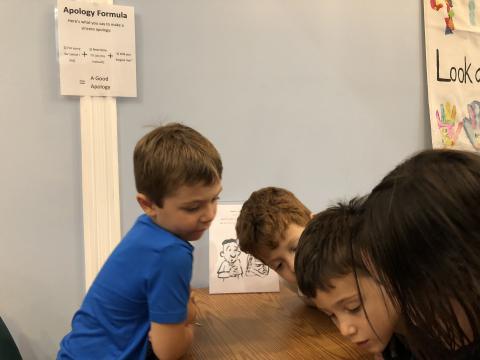Why is it so hard to say “I’m sorry”? What makes a good apology? Should we apologize when we don’t mean it? This week the Erev kids (grades 3-5) took a look at the Jonah story and talked it out! In the story, God tells Jonah to warn the city of Ninveh that God is going to destroy them because they were wicked. Jonah doesn’t want to, he runs away, things get fishy. Jonah changes his mind and warns the people of Ninveh, who fast and apologize to God (sound like a familiar holiday you may have just observed?). If you want to read the story for yourself, click here.
- What do you think happens next for the people of Ninveh? Do they really permanently change their behavior?
- Yes, it became a part of their routine.
- Yes, they didn’t want to go through the whole thing where Jonah comes into their town and tells them God is going to kill them for being bad, again.
What compelled the people of Ninveh to be better? Do you think they would have changed without having their lives threatened? What do you think that says about how sorry they were?
- No, the main reason they changed is that God threatened them that God would kill them with a storm, and if that hadn’t happened they would be like “oh we don’t need to worry, we can keep doing this because nothing bad is happening”.
- Maybe they would stop being bad when they’re like 100.
- They weren’t that sorry, because the only reason they changed was because they had their lives threatened, they were just worried about their lives, not changing their behavior.


Is worthwhile to apologize if you don’t mean it? Is it important for the apologizer? The apologizee? Both?
- It is important to apologize to make a fight not last so long.
- The apology is for both. You feel good if your apology is accepted and the fight is over and your friendship isn’t ruined. It is still important if the apology isn’t accepted, it’s not a bad thing if the apology isn’t accepted, it just means they’re not over it yet.
- It’s so weird—I feel like I have never had an apology not accepted, because I feel like most people are taught that you’re supposed to accept people’s apologies.
Why is apologizing hard?
- Sometimes it makes me feel really bad because I did something really wrong, or if I didn’t do anything wrong and I feel like I have to apologize anyway. Like when a teacher makes you.
- It feels awkward, I totally understand why I should apologize, but I’m afraid I’ll look weird and it will turn out wrong or they won’t accept it and then I’ll look weird.
- It feels maybe awkward and confusing.
What should an apology include to be effective?
- It should be loud so they can hear it.
- Sorry I did this, next time I’ll try not to ___, will you forgive me?
- It helps that they know that you know what you are apologizing for, and you have to ask them to forgive you.
Apologizing is tricky business! We’re going to keep talking about it and working on it together throughout the year, not just on Yom Kippur.

